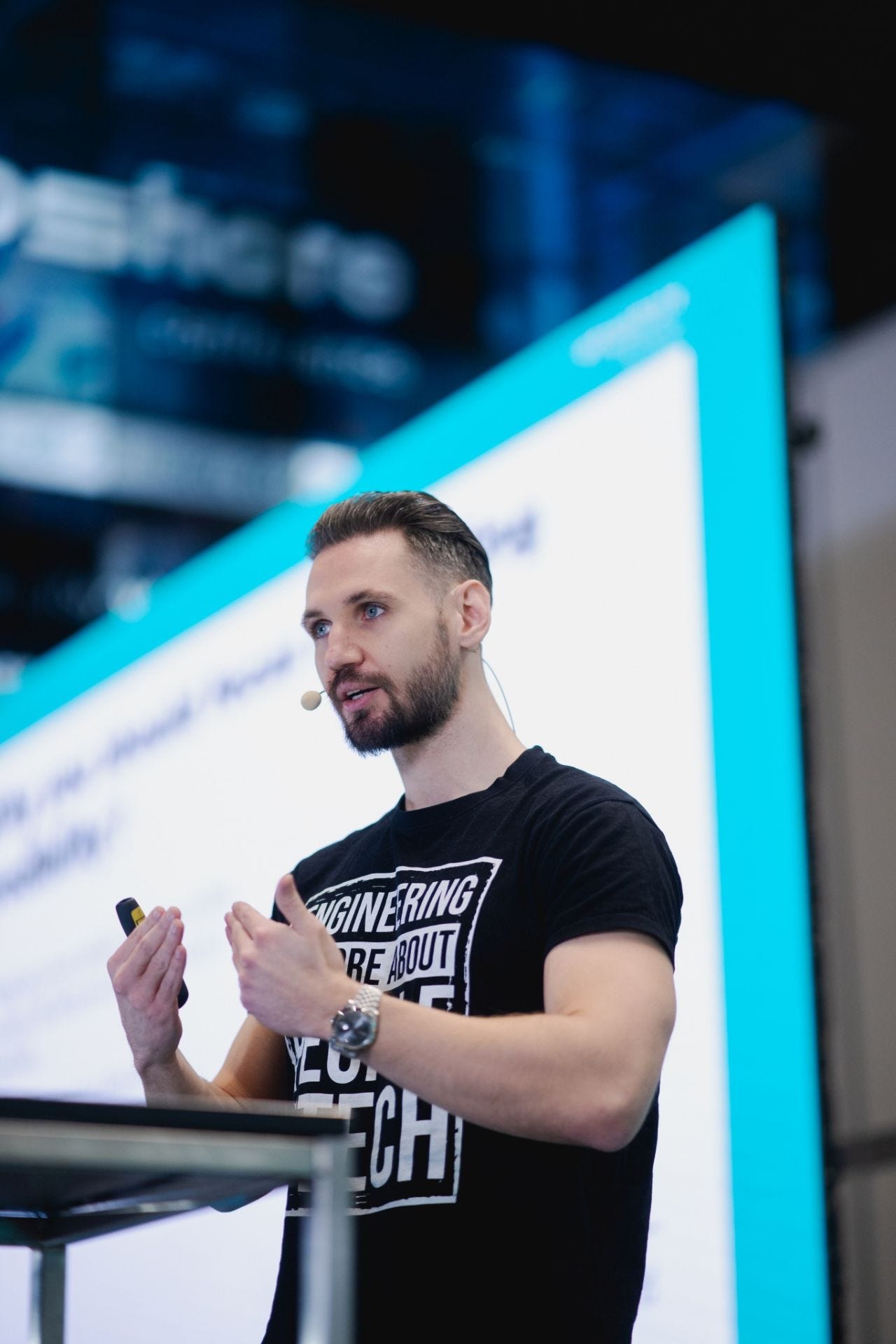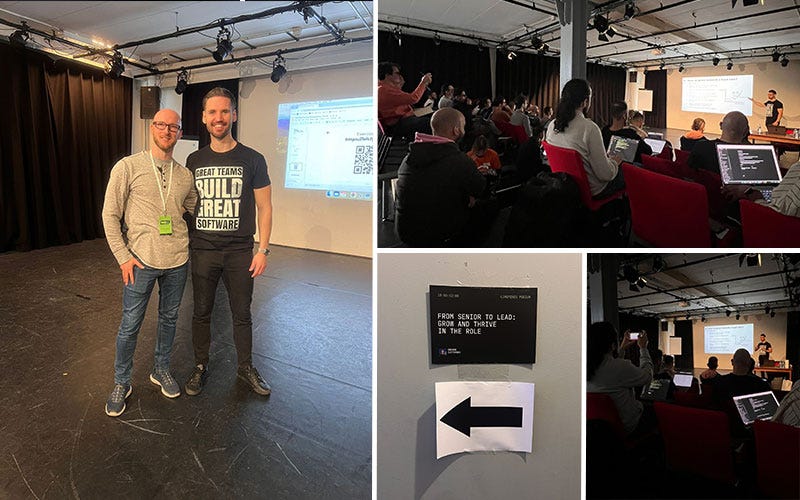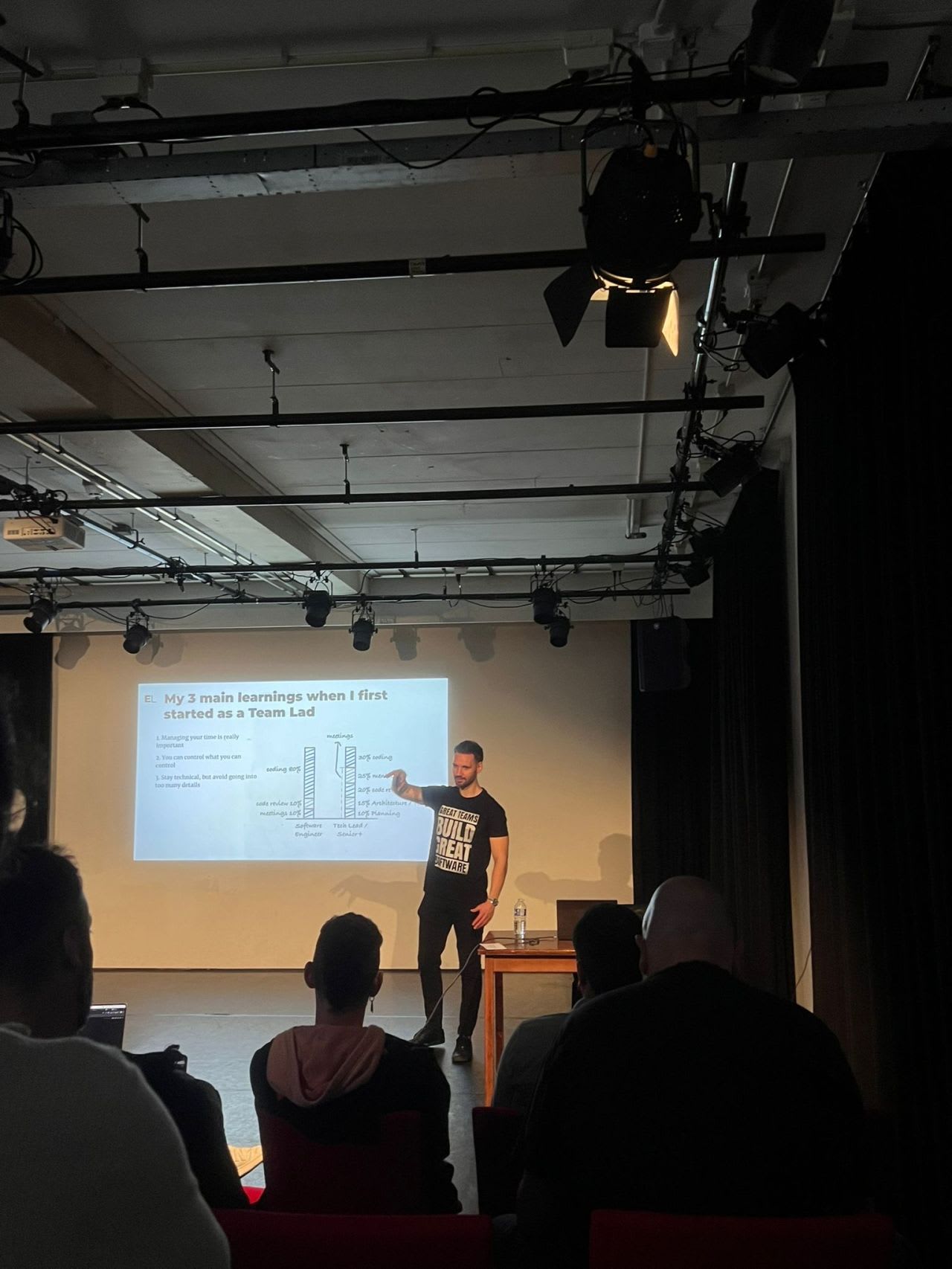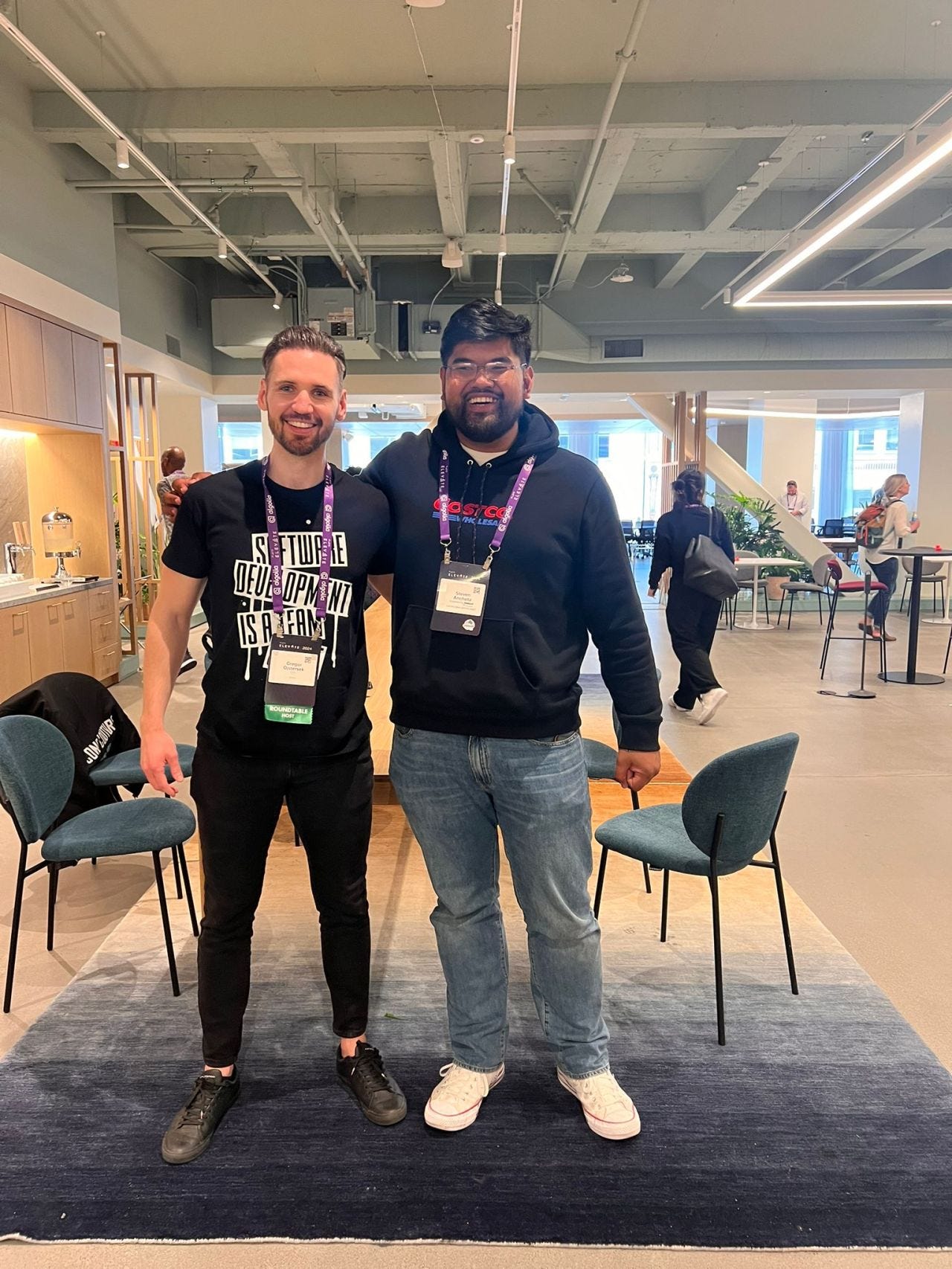In the world of engineering leadership, Gregor has built a reputation not just as a fractional CTO, but as a mentor who has guided thousands through their own leadership journeys.
From his early days as a junior engineer to leading teams across different time zones and industries, Gregor’s insights are rooted in experience, personal growth, and a belief that leadership isn’t about titles—it’s about impact.
In this interview, Gregor shares pivotal moments that shaped his leadership philosophy, the lessons he’s learned along the way, and the wisdom he wishes he had earlier in his career.
“If you are trying to get better at anything…”
RT: Reflecting on your journey from software engineer to a mentor for thousands, what’s a moment in your early career that, looking back, was a subtle yet profound turning point in shaping the leader you are today?
Gregor: The important turning point in my career was when I realized that competing and comparing with others regularly is not the way to go, that was specifically prominent for me as a jr. engineer.
I used to not help others, because I thought they would get better than me if I would.
But I realized that this is not the way to go and it’s much better to help others, grow together with others and be a team player.
Your growth and everyone's growth is much faster that way and we all benefit from that.
This is the mindset that I strongly advocate for now.
If you are trying to get better at anything, make sure to collaborate and not compete with others.
“I thought that leadership is for people that are born leaders…”
RT: Comparison is the thief of joy I always say!
Leadership often involves facing uncomfortable truths about ourselves. Can you recall a moment where you confronted a belief you once held strongly that you’ve since let go of, and what changed your mind?
Gregor:
Two things:
1. I thought that leadership is for people that are born leaders. But on the contrary, leadership, like any other skill, needs to be learned.
A lot of people may think that being a leader "is not for them". It’s important to understand that everyone can be a leader. No matter if you are extroverted or introverted.
Everyone leads in a different way → there is no “one way of leading”.
Leadership is not about the title or position, it's a mindset.
We all can be leaders and lead in our own way.
2. I thought that being a leader means that you need to be the best at what you do.
I’ve learned through experience that being a leader is not about you getting the most out of yourself, but empowering, uplifting and getting the most out of your team.
Best leaders are the ones who can inspire and help others to be their best selves.
“Find the leadership style that suits the individual…”
RT: I love that framing—leadership is a skill like any other. Just like a muscle, you need to get the reps to build it right?
If you could step back in time and mentor your younger self as they navigated their first leadership role, what advice would you give—and what would you let them discover on their own?
Gregor: That’s a very good question and if I’d return back in time to when I first became a manager.
I would seek mentorship a lot more than I did.
There weren't a lot of good resources on engineering leadership as they are right now.
Hence, that was also the reason why I started writing the Engineering Leadership newsletter → to help people like my past-self to not make that many mistakes in their first managerial role.
You can’t teach experience, but you can guide a person to focus on the right things and to give them pointers on handling certain situations.
So, if I would mentor my past self, I would explain the importance of owning your career and having a clear understanding of your goals, the expectations as a new manager, the importance of managing time, balancing the individual contribution vs. delegation, managing up and I would give feedback on specific situations.
So, I’d rather give them the tools, not just the answers and then it’s a lot easier to progress through experience.
That’s how every individual learns the most → to apply to actual use cases.
But one thing is important to note, mistakes are unavoidable, it’s how you react to them → that is the important part.
“I’ve set up a very optimistic deadline for us to deliver the MVP and the team was not happy about it…”
RT: I really like what you said—you can’t teach experience. And you’ve have plenty of it!
In your role as a fractional CTO, you’ve likely walked into chaotic or ambiguous environments. Can you share a moment where you had to make a counterintuitive decision to bring order, and what guided your thinking?
Gregor: Right, I’ve seen a lot of different cultures and environments over the years.
From some really bad, where blaming was deeply rooted in the culture and individualism was praised, to some really great where people enjoyed working with each other and everyone was helping and uplifting others.
One of the counterintuitive moments that I would point out was when we got our license to be able to operate as a business at Zorion and we were very close to finishing our MVP of the mobile app.
I’ve set up a very optimistic deadline for us to deliver the MVP and the team was not happy about it.
But the reason for me to do that was that I knew how important it was for the business to deliver the MVP as soon as possible.
I’ve also let everyone know that the scope is variable, but the time is fixed.
That got us thinking about how we can simplify and deliver faster.
In the end, we delivered in the predicted timeline and we have also removed a big feature, which shown to not be even needed later.
RT: Oh very interesting. I love that tactic to ship the MVP ASAP, and also saying very simply that time is fixed—figure it out. That gets to faster feedback loops and learning cycles.
You’ve led fully remote teams across different time zones and cultures. How do you create a shared sense of purpose and alignment among team members who may never meet in person?
“You want to create an environment where people know exactly what is great.”
Gregor:
Setting up a strong vision, culture and ensuring that everyone understands the expectations is key.
You want to create an environment where people know exactly what is great to do and what should be avoided.
This is an example of values I’ve set up at Zorion:
Also, I like to hire the right kind of people for my team. I focus on hiring people who are team players, are great people to work with and help others get better.
These are very important traits for me.
“Well, things didn’t get better and because of it, the whole team atmosphere got worse.”
RT: Vision, culture, leadership—all of these things are so intertwined. As Jensen Huang says, great leaders architect environments where innovation can thrive.
In the tech world, where failure is often celebrated as a learning tool, what’s a failure in leadership that still lingers in your memory—and how did it redefine your understanding of success?
Gregor: One of the things I needed to learn when I became a first-time manager was the importance of timely feedback.
I remember very well one of my first months as a manager, where I knew I should give feedback to one of my reports, but I was waiting for the perfect moment and thought that “things will magically get better”.
Well, things didn’t get better and because of it, the whole team atmosphere got worse.
I learned that giving timely feedback is key.
That’s why currently, I give recurring feedback on every 1:1 meeting and in case of any behavioral or critical things, I give feedback immediately.
Also, I give positive feedback quickly and publicly and feedback for improvements privately.
“Engineering is more about people than tech and great teams build great software.”
RT: Feedback is gold. It’s part of the 3 F’s for me to master any skill: focus, feedback, fix it. Without the feedback loop, there is no improvement.
Emotional intelligence is a recurring theme in your work. I don’t think it’s talked about enough for engineering leadership. Could you elaborate on why you think EI is important and where it shows up in the journey of an engineering leader?
Gregor: Right, I am a big advocate for EI for everyone in the engineering space,
I like to say that: Engineering is more about people than tech and great teams build great software.
Engineering is also one of the most collaborative fields out there and you need to be good at working with others.
With good EI, you are a great person to work with, you help others, you make others around you better and you handle disagreements the right way.
And if we all make each other better and help each other, we will automatically also deliver great software, provide business value and delight our users.
“Ultimately, soft skills are the backbone of leadership.”
RT: It takes many hands to row a big boat. EI is key.
If someone were to write your biography 50 years from now, what’s the chapter you’d want to be remembered for? And what would the name of that book be?
Gregor: That’s a really good question and it gets you thinking!
One of the things that I get a lot of personal satisfaction from is: helping others. Whenever I get a message from someone that I was able to help them with getting a promotion or getting a new role, this always makes my day.
So, that’s something that I wish to do more and more and I would love to be remembered as someone who has helped and inspired people to be better.
About the name of the book, hard to think of it right now, I’ll revisit this in 50 years :)
Want to hear more from Gregor?
📌 Follow him on LinkedIn.
📌 Check out his Engineering Leadership newsletter.
📌 Check out his 4.9 Star Senior Engineer to Lead Maven Course.
P.S. Want reminders on growth, empathy, and leadership? Follow me, Robert Ta, on LinkedIn, Threads, and Twitter.











